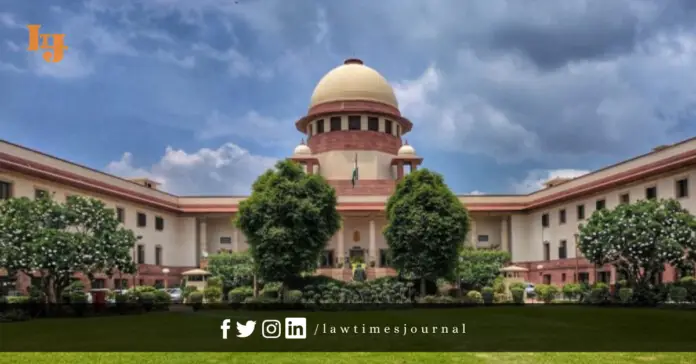
The present Special Leave Petition is being filed aggrieved by the impugned common order dated 06.02.2020 passed by the Hon’ble High Court of Madras in Writ Petition in W.P. No.95 of 2020, whereby the Hon’ble High Court, on erroneous assumption that the Petitioner has claimed reservation mixed with age relaxation for applying in the recruitment process pertaining to District Judge (Entry Level) by direct recruitment and interpreting the Judgment cited by the Petitioner on a wrong footing, had dismissed the Writ Petition and negative the positive pleadings of the Petitioner.
Prior Facts:
Previously The Madras High Court dismissed the petition on the following finding as:
- No age relaxation for candidates in Backward Class category is either contemplated by the Shetty Commission or even indicated in the All India Judges’ Association case {(2002) 4 SCC 247} and therefore cannot be claimed as a right by the Petitioner.
- On the issue of vacancies being of earlier years and the recruitment process having not been conducted, the Petitioners had only a chance of applying which do not give a right of appointment and the loss of opportunity on account of delay cannot be a ground for relaxation of age.
- Para 40 of the judgement in All India Judges’ Association case restricts in the High Court interference in the matter.
- As far as Bhola Nath Rajak and others Vs. The State of Jharkhand and others case is considered, a contrary view was taken by Hon’ble Gujarat High Court in the case of Dushyantbhai Chandrakantbhai Shah vs. High Court of Gujarat and others and a special leave petition against the Gujarat High Court was dismissed on 11.08.2017.
- The relaxation given in the earlier notification of the same year is only an error by the High Court and cannot create any legitimate expectation.
- There is no rule enabling relaxation of age and the rule providing for the maximum age of 45 years for backward communities and treating on par with unreserved candidates cannot be found fault with.
Key Features:
The petitioner contented that, The Hon’ble High Court was in error in all these findings which are not based on strong principles or relevant to the issue or on clear misconception as to application to the present case.
The petitioner added that admittedly recruitment did not happen since 2013 and the vacancies are of the previous year and the cut-off date for the reckoning the age is the issue and further a reserved category candidate being considered along with the unreserved category is the issue, which clearly attracts Art 14 more particularly when SC/ST candidates are given the benefit, other judicial services recruitment gives the benefit, etc.
The petitioner noted that, the High Court failed to consider the issue raised by the Petitioner in W.P.No.95 of 2020, who comes under the Backward Class category that leads to arrive at a conclusion that though there was no pleading for reservation on par with Scheduled Cast and Scheduled Tribe, the High Court has arrived at an erroneous conclusion the Petitioner is claiming reservation on par with Scheduled Caste and Scheduled Tribe. Therefore, the Petitioner could not be permitted to apply for the examination.
The petitioner said that the High Court declined to interfere with the relaxation of upper age limit in the light of the observation made by the Apex Court in “All India Judges’ Association & Others vs. Union of India and others, reported in (2002) 4 SCC 247”, wherein, it has been held that, “any clarification that may be required in respect of any matter arising out of the decision will be sought only from this Hon’ble Court and the proceedings, if any, for implementation of the directions given in that Judgment shall be filed only in this Hon’ble Court and no other court shall entertain them”.
The petitioner added that, the High Court failed to conduct examination every year as mandated by the Hon’ble Supreme Court in Malik Mazahar Sultan case, reported in (2008) 17 SCC 703, the Petitioner could not participate in the selection process when the Petitioner was well within the age limit as prescribed by the Hon’ble Jagannatha Shetty Commission. Therefore, the High Court exercising the inherent powers under Article 233 to 235 of the Constitution ought to have permitted the Petitioner by relaxing upper age at 48 years as extended in the earlier notification No.1 of 2019 dated 13.01.2019, as one time measure as has been held by the Division Bench of the Jharkand High Court in Bhola Nath Rajak and others v. The State of Jharkhand and others, 2014 SCC Online Jhar 73: (2014) 2 AIR Jhar R 638.
Edited by J. Madonna Jephi
Approved & Published – Sakshi Raje
Reference:
- Case of N.S. Sivakumar vs. the Additional Chief Secretary, to the Government of Tamil Nadu and Ors. Special Leave Petition filled by Advocate Lakshmi Ramamurthy in the Supreme Court of India on February 17, 2020.








